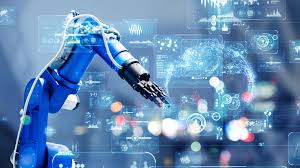Sourced: jdsupra.com
The efforts of Stephen Thaler are worth following. He, along with a team of researchers and academics, has spent the past decade developing DABUS, an artificial intelligence (AI) system that “invents.”
Unlike specialized AI systems, DABUS is fed general information and is not trained to solve a particular problem – rather, DABUS is given free rein to develop anything it wants. Thaler claims that DABUS has designed, without having been given instructions on what to create, a food container that is easier to transport and a warning light that blinks in a pattern that is difficult for humans to ignore.
Thaler then teamed up with attorneys to test the question of whether an AI system can be credited as an inventor on a patent. Thaler and his team filed several patent applications around the world for these two inventions, crediting DABUS as the formal inventor and forcing patent offices around the world to address the issue of whether a non-human intelligence system can be named as an inventor on a patent application. Some of the hurdles were procedural and did not deal with the key issue.
EPO Dismisses AI Inventorship
In November 2019, the European Patent Office (EPO) rejected Thaler’s EPO application because it did not conform to the rule that requires an application to state the family name, given names and full address of the inventor, without addressing the issue of whether a non-human intelligence system can be named as an inventor.
Thaler’s team returned with a new application providing a first/given name ([DABUS]) and a last/family name (“(Invention generated by artificial intelligence)”) so that the EPO could get right to the point. They ruled in January 2020 that an AI system lacks a legal personality and, therefore, even with a proper first name, last name, and address, an AI system cannot be named as an inventor on an EPO patent application.
USPTO Weighs In
The USPTO has now weighed in as well. On April 27, 2020, the USPTO denied a request by Thaler (as the assignee of the rights in the application) to proceed with the application naming DABUS as the sole inventor.
The USPTO relied on the statutory text of Title 35 of the United States Code (“whoever invents or discovers . . . may obtain a patent therefore “) and a previous court decision in Univ. of Utah v. Max-Planck-Gesellschaft Zur Foerderung der Wissenschatfen holding only natural persons could be inventors under U.S. patent law.1 The Federal Circuit’s reasoning was that the key inquiry to inventorship was who conceived of the invention, and that conception is a mental process that can only be performed by humans:
Conception is the touchstone of inventorship, the completion of the mental part of invention. It is the formation in the mind of the inventor, of a definite and permanent idea of the complete and operative invention, as it is hereafter to be applied in practice. Conception is complete only when the idea is so clearly defined in the inventor’s mind that only ordinary skill would be needed to reduce the invention to practice, without extensive research or experimentation. [Conception] is a mental act. . . .2
While the Univ. of Utah case related to whether a state or corporation could be an inventor, the USPTO found that the outcome would not be any different for an AI system. The USPTO also raised the problem with ownership of the patent as “petitioner admits that DABUS cannot own any property including the property rights in inventions the machine itself created,” calling into question whether Thaler had the authority to be an assignee or file the patent application.
SCOTUS Ruling Holds U.S. Copyright Act Requires Human Involvement
A similar question exists under U.S. copyright law. The U.S. Copyright Act protects “original works of authorship.”3 The U.S. Supreme Court held that to be an original work of authorship, the work must possess at least a spark of creativity, and cannot be “mechanical” or “routine”.4 Most cases require some element of human involvement in order to find protectable authorship.
The U.S. Copyright Office will register an original work of authorship, provided that the work was created by “human,” and not, for example, by a machine or mere mechanical process that operates randomly or automatically without any creative input or intervention from a human author:
The copyright law only protects ‘the fruits of intellectual labor’ that ‘are founded in the creative powers of the mind.’ (citation omitted) Because copyright law is limited to ‘original intellectual conceptions of the author,’ the Office will refuse to register a claim if it determines that a human being did not create the work.
Thaler Vows to Appeal
So, for now, patent inventorship in the United States resides solely within human inventors. However, Thaler has stated that he plans to appeal the decision as he believes that DABUS should be the rightful inventor, and courts may soon be forced to weigh in on whether AI systems are to be treated like a microscope, personal computer, or any other tool used to aid a human in the development of new innovations, or treated as inventors having sufficient creativity and inventiveness to warrant patents.
While DABUS has not taken control over humans, it has at least forced patent offices to take a definitive position on whether it could be a named inventor.


